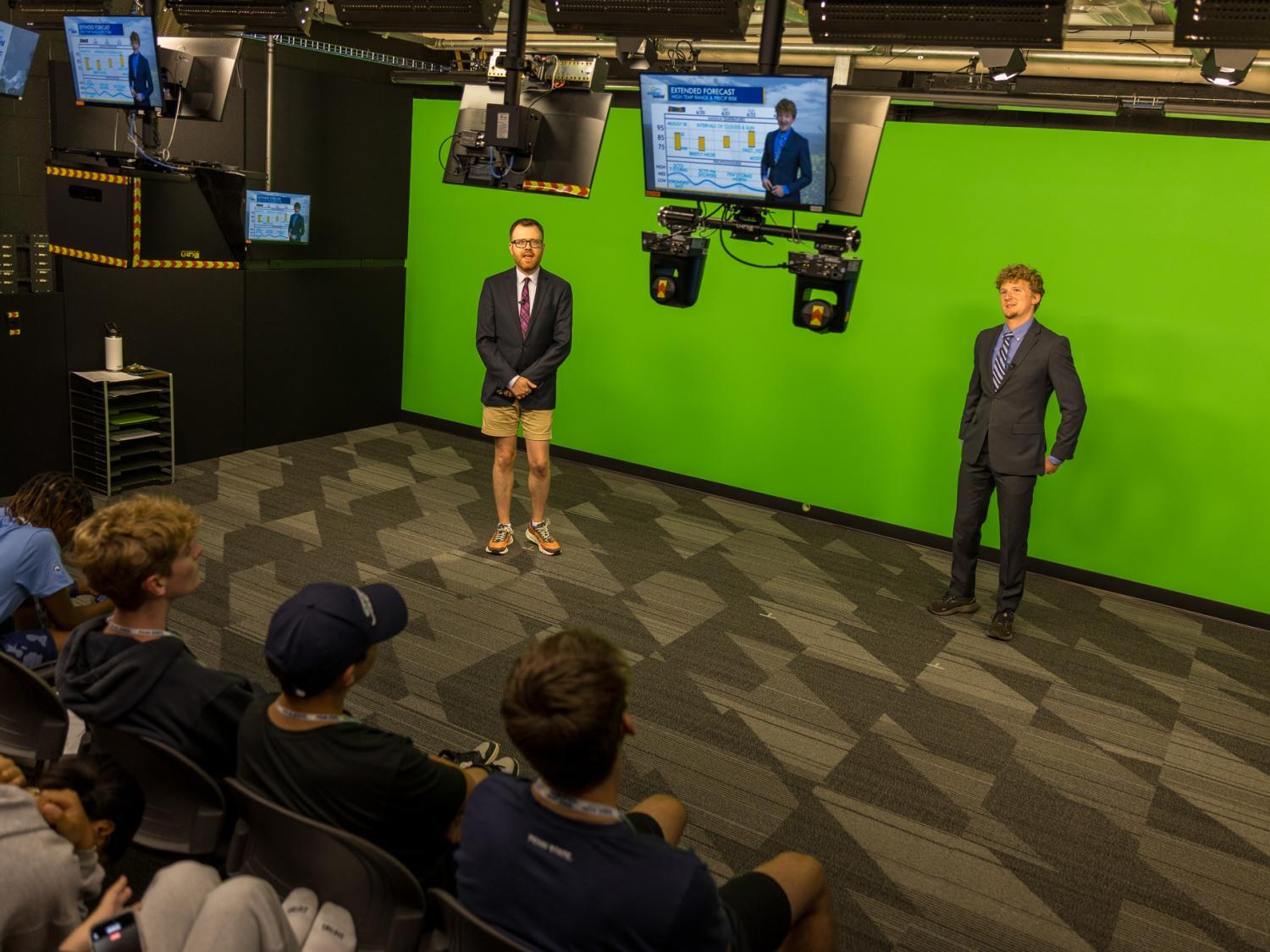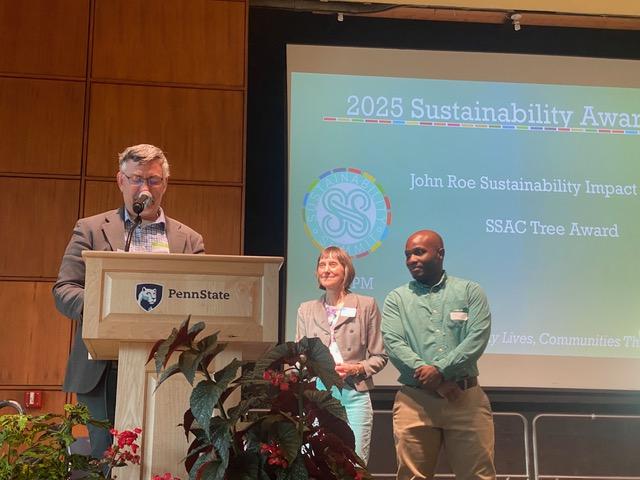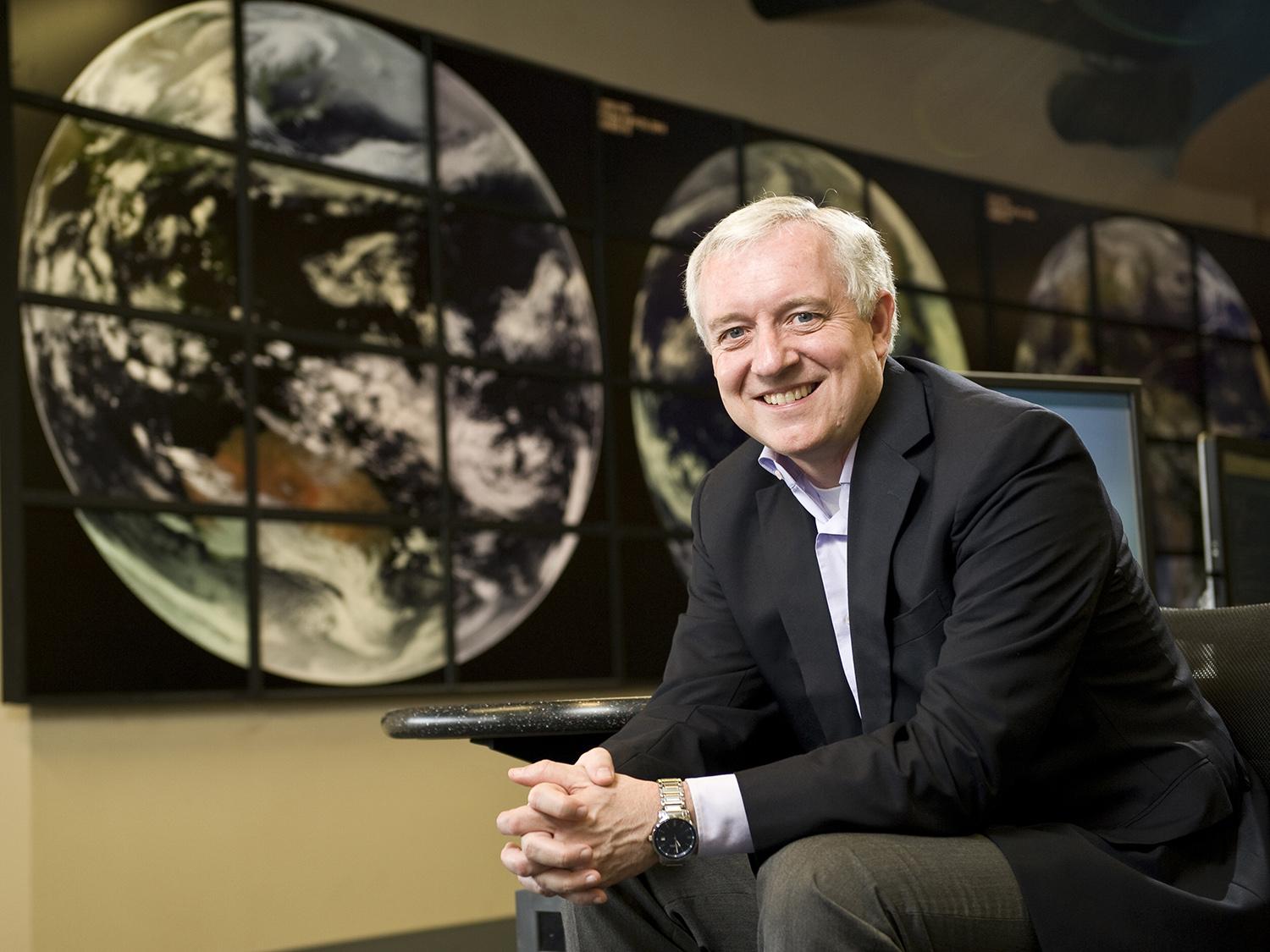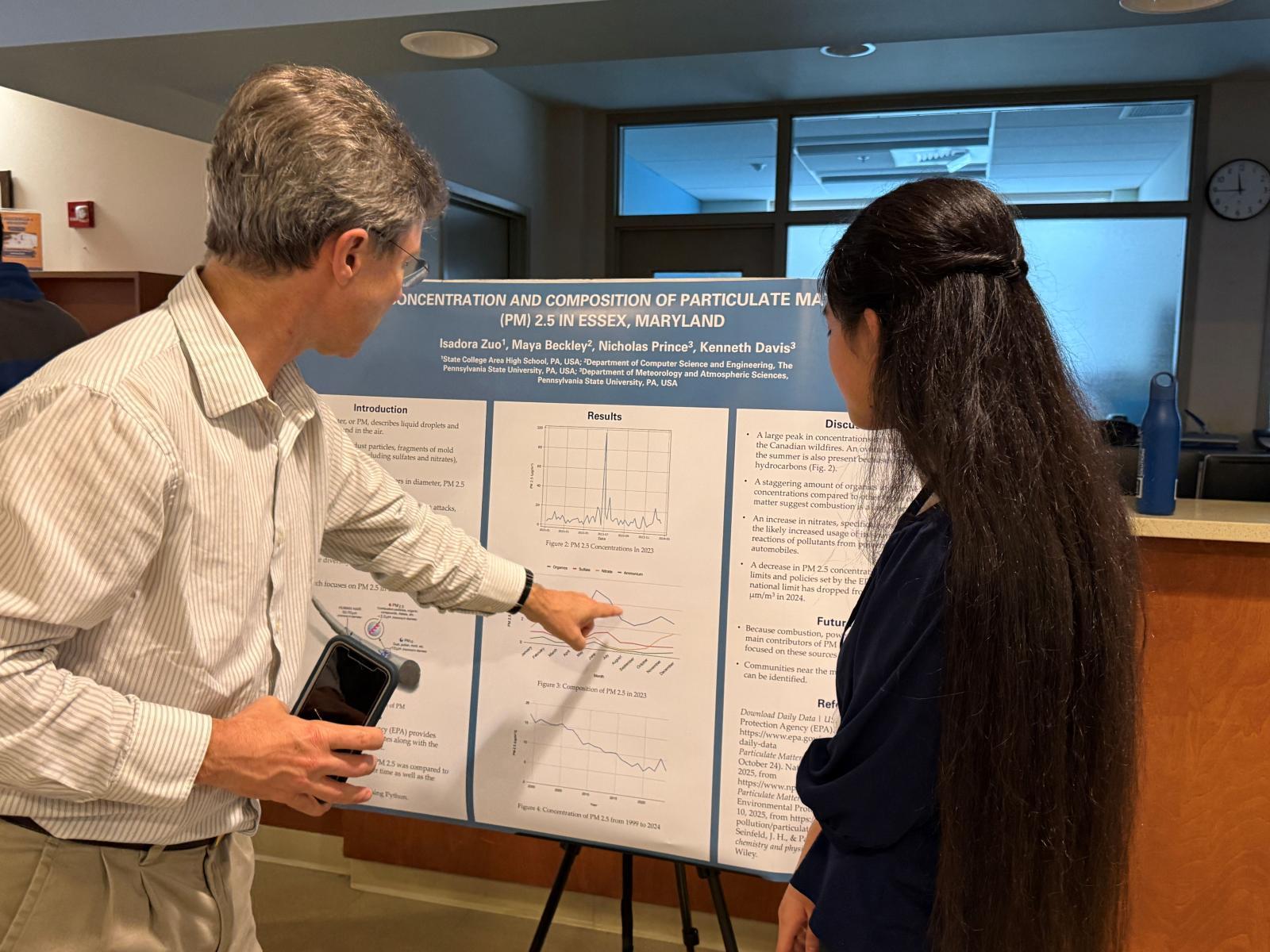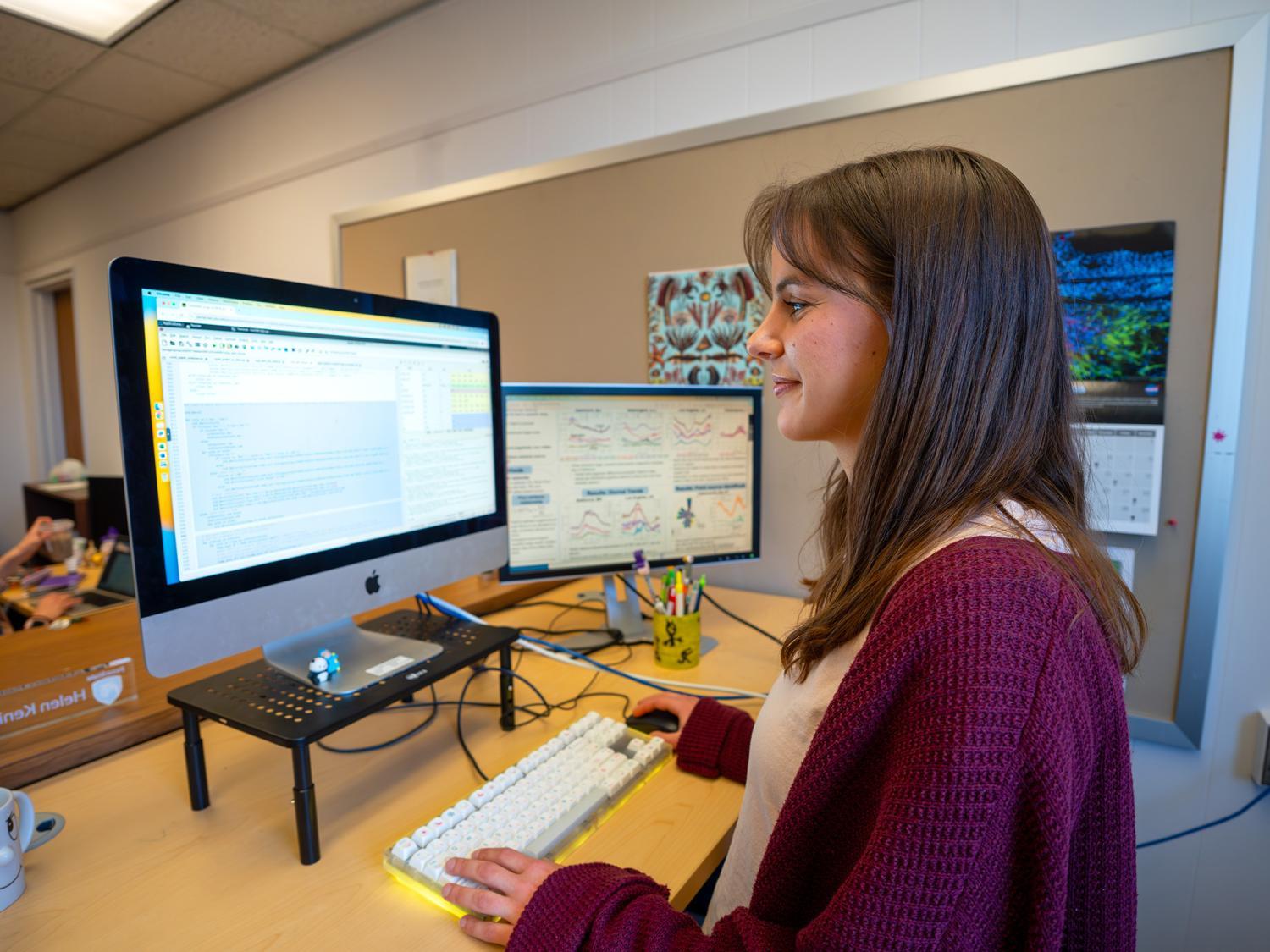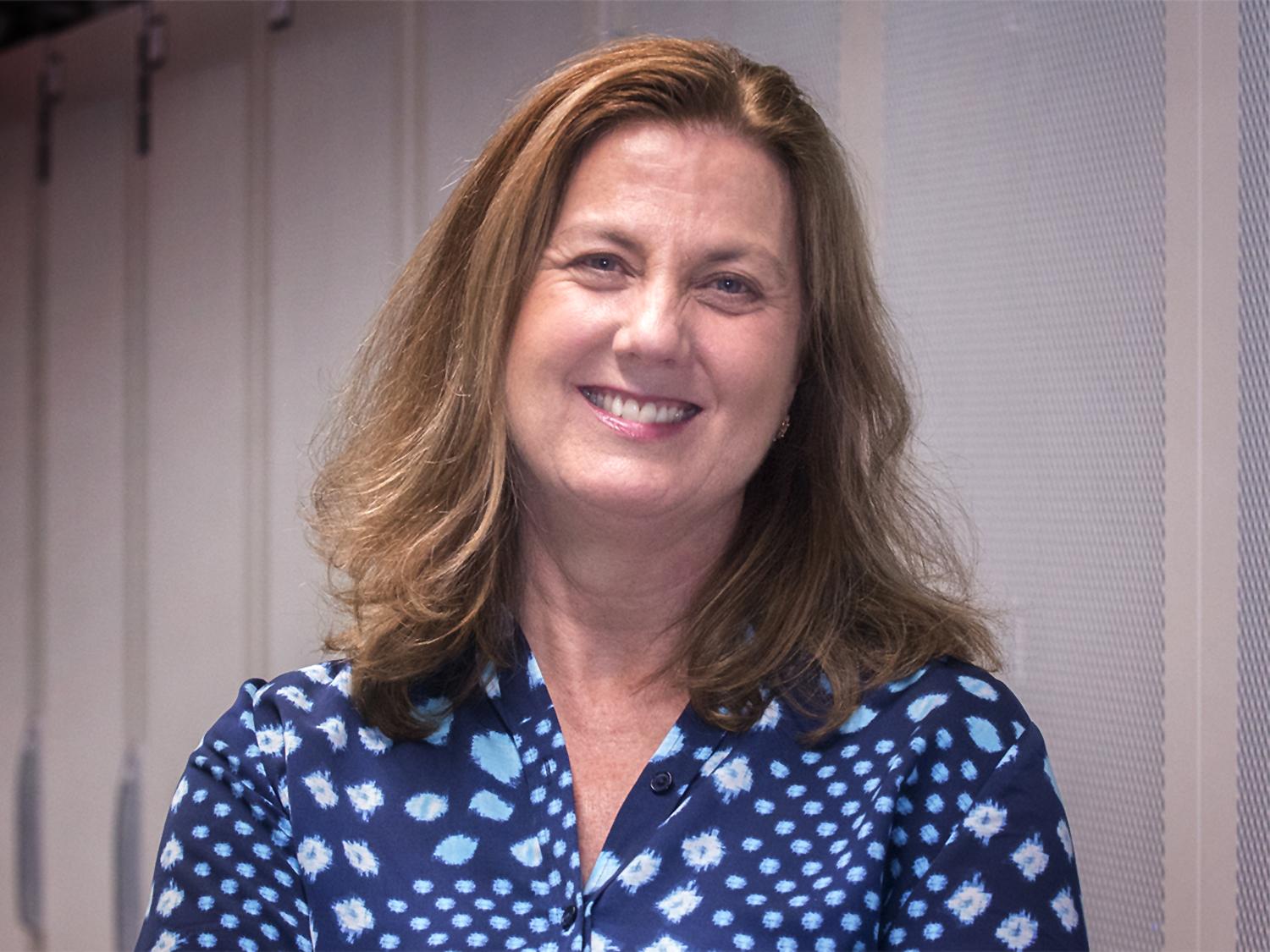Penn State’s Weather Camp has been a summer staple for self-professed “weather geeks” for 25 years. William Syrett, an associate teaching professor at Penn State, has been involved in Penn State's Weather Camp since it began in 2000. More than 1,400 students have participated in the course.
Data that has been lost in the weeds — or more accurately the turfgrass — could help improve estimates of carbon dioxide emissions from urban areas, according to a team led by scientists at Penn State.
Penn State Sustainability has announced the 2025 recipients of its annual awards. These accolades, including the John Roe Sustainability Impact Award, the Student Sustainability Advisory Council Tree Award and the Pennsylvania Environmental Resource Consortium (PERC) Campus Sustainability Champion Award, commend the extraordinary contributions of students in spearheading sustainability initiatives.
David Titley, Penn State alum, retired U.S. Navy rear admiral and retired University professor, will give the commencement address for the spring 2025 baccalaureate degree commencement ceremony for the College of Earth and Mineral Sciences. The ceremony is scheduled for 1 p.m. on Saturday, May 10, in the Pegula Ice Arena on Penn State's University Park campus.
Penn State’s chapter of EnvironMentors held its annual research symposium on April 26 at the Pasquerilla Spiritual Center at Penn State University Park. The EnvironMentors program partners high school students with faculty and undergraduate student mentors in science, technology, engineering and math (STEM) to plan and conduct environmental research projects. Students then present their results at the annual symposium.
To protect against rising sea levels in a warming world, coastal cities typically follow a standard playbook with various protective infrastructure options. For example, a seawall could be designed based on the latest climate projections, with the city officials then computing its cost-benefit ratio and proceeding to build, accordingly.
Penn State recognized 42 graduate students with annual University awards that celebrate students' impact in research, scholarship, teaching, outreach, mentoring and more. Meteorology and atmospheric science doctoral student Helen Kenion, won an Alumni Dissertation Award. Helen's dissertation presents and applies a novel method for measuring urban greenhouse gas emissions at the neighborhood scale. Her research addresses a critical gap due to the fact that urban areas are responsible for over half of human-caused greenhouse gas emissions, but direct emissions measurements in cities are rare. Policymakers rely on human activity-based emissions estimates, or emissions inventories, which often contain systematic errors and take years to complete. Atmospheric emissions estimates are essential to evaluate and improve inventories.
Jon Nese, teaching professor and associate head of the undergraduate program in meteorology and atmospheric science in the College of Earth and Mineral Sciences (EMS), is the recipient of the 2025 Undergraduate Program Leadership Award. The award recognizes a faculty member who has demonstrated exemplary leadership benefiting a Penn State undergraduate degree program. Specifically, it recognizes those individuals who have major responsibilities for the delivery of undergraduate education within a unit and who are providing leadership that has transformed or revitalized the undergraduate program in some way.
The Penn State community is mourning the loss of Jenni Evans, professor emerita of meteorology and atmospheric science and director emerita of the Institute for Computational and Data Sciences, who died April 3 in her Boalsburg, Pennsylvania, home. She was 63.
Rainfall and long-term water availability in a region before a woman becomes pregnant and during pregnancy predicted future growth outcomes of children in Uganda, according to new research led by a team from the Penn State Health Milton S. Hershey Medical Center and the Penn State College of Medicine. Women living in an area that did not receive adequate rainfall or experienced drought were more likely to give birth to children who don’t grow at the expected rate for their age between birth and age five. Children who are under-nourished and behind in their growth are more susceptible to infections and may experience cognitive, physical and metabolic developmental impairments.


